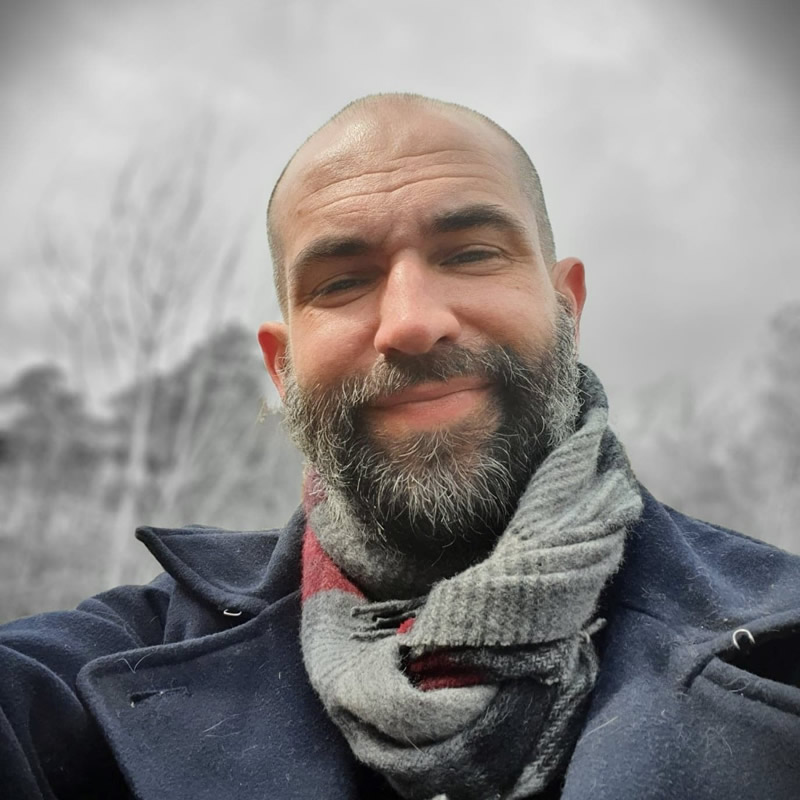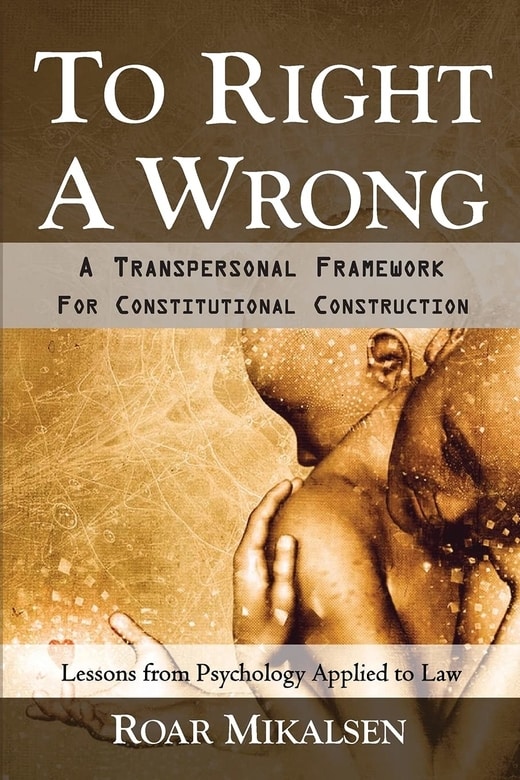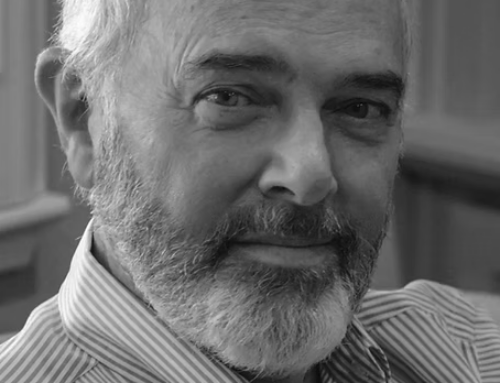 Roar Mikalsen is the author of six books which are changing the world one at a time. His authorship covers a large area ranging from cosmology, mysticism, self-help, and consciousness research to power politics, human rights law, drug policy, constitutional interpretation, and social engineering. He is the founder of the Alliance for Rights-Oriented Drug Policies (AROD), an organization which addresses drug policy reform from a perspective of human rights, and a nominee of two prestigious human rights awards (Vaclav Havel and Martin Ennals).
Roar Mikalsen is the author of six books which are changing the world one at a time. His authorship covers a large area ranging from cosmology, mysticism, self-help, and consciousness research to power politics, human rights law, drug policy, constitutional interpretation, and social engineering. He is the founder of the Alliance for Rights-Oriented Drug Policies (AROD), an organization which addresses drug policy reform from a perspective of human rights, and a nominee of two prestigious human rights awards (Vaclav Havel and Martin Ennals).
A platform for his work is Life Liberty Productions, a publishing house and consulting agency dedicated to the Spirit of Freedom. You will find books that are embraced by professionals and have the potential to bring humanity one step further on the online store.
Tell us about your book.
To Right a Wrong is a paradigm breaker in law and constitutional construction. Adding psychology to the already accepted terrain of political theory, this book completes the founders’ vision and prepares the ground for an era of utopian society building.
Now, it may sound like a tall order to achieve. Even then, when it comes to matters of constitutional interpretation, we are dealing with principles of great weight, and to the extent that we follow their lead, we will overcome false and disserving paradigms. Part three, therefore, presents a study on the drug law, showing how drug cases have been mishandled by US courts. Today, only a moral panic and huge blinders maintain the credibility of the justice system, and To Right a Wrong provides a map for making progress.
Why did you want to write a book?
I had authored four books before, but this manuscript was written in prison. In 2015, when the project began, I was a political activist serving an 8.5-year sentence for cannabis-related criminality, and my previous books had covered tremendous ground. With Reason Is, I did a major work on the nature of consciousness, which provided a change of perspective. With To End a War, I explained the problem with drug prohibition and the European/Global system of human rights. However, I had not delved into the American system and its principled foundations.
Thus, what began as a project to uncover the relationship between the US Constitution and drug prohibition evolved to expand on the connection between morality and law. A psychological model was advanced to explain the dynamics of society building at different levels of consciousness, and To Right a Wrong thus came into being. I cannot say that I saw it coming, but I was honored to see it through.
 As a writer, what is your schedule? How do you get the job done?
As a writer, what is your schedule? How do you get the job done?
My years in incarceration were extremely productive. I had plenty of time and while I did not have to a computer, the prison had a great librarian. Thus, after 3 years of studies, Reason Is was written by hand, and other inmates helped out with the translation into English. While the isolation was difficult, there was plenty of motivation to keep writing on matters of social and personal importance, and I was working at least 12 hours a day.
After release from prison in 2016, life improved with greater connection with friends and family. Fatherhood produced brought me many joys, but motivation to continue writing was not a problem. My aspirations for society persevered and the legal situation in Norway had only deteriorated over this time. The same was the case with the rest of the world, and I worked as much as I could. The words, thankfully, were pouring through and I did not have to invent any plots. I guess that was the easy part, as I had attempted to put a novel together two decades ago but discovered it was not for me.
For many years, therefore, I believed that I would only be writing non-fiction. Even so, fatherhood brought unexpected surprises, and last year Billy Goat Gruff, The Origin came through. I would say miraculously, as I did not see it coming, and everything was completed within a week. The book basically wrote itself and there was a mystical connection which made the stuff of dreams play out in real time. Synchronicities, coincidences, and purpose filled my days in wonderful ways, and friends and family contributed spontaneously.
How do you deal with writer’s block?
Thankfully, I have never experienced this. That is, in the beginning of my authorship, I wrote sentences that I liked but did not know what to do with. I was inspired by Hermann Hesse, Milan Kundera, Fyodor Dostoevsky, Leo Tolstoy, and others, but narrating a novel was not for me. Instead, I found that non-fiction would write itself, and so I continued along this path. In my experience, therefore, dealing with a writer’s block has been easy. Instead, as I believe is more common with authors, it has been a greater challenge trying to overcome the reader’s block.
Why did you write about this particular subject?
As a human rights activist, I was familiar with the discipline of constitutional law. I also realized that there was a distance between theory and practice and that if it could be bridged, utopian societies would be within our reach. Thus, I set out to explain the foundations of constitutional law, that we were living on our knees, and why we should focus on getting it right.
What did you learn on your journey as an author?
I learnt much that I did not know about the connection between the American system of law and the Global/European model of human rights. Reading up on authorities on the 9th Amendment, like Professor Randy E Barnett, was a revelation and it was a pleasure to systemize the thoughts of so many great minds. While it was underway, I had no idea that the manuscript would turn out as it did, and the ride was a pure joy.
Even so, it was shocking to see how poorly the discipline of constitutional law had been developed by our institutions, and I think it is time for society to stop letting political machines corrupt the fabric of our legal systems.
 What is the foremost problem with modern society?
What is the foremost problem with modern society?
To describe it in one word, scapegoating. Our legal and political systems cannot change until society is ready to evolve, and the values, ideals, and principles that are connected to wholeness have always been our guiding lights. We see this in religion as well as the discipline of constitutional law and human rights, where principles of equality, proportionality, autonomy, and a presumption of liberty provide a foundation for systems of justice. To the extent that humanity overlooks the light of these principles, there will be obstacles, and our current predicament is due to a lack of responsibility.
Because we have put liars into positions of power and accept hypocrisy and double standards as the norm, society is struggling. However, most people refuse to face the distance between theory and practice, and that’s where scapegoating comes into play.
As shown in my book Human Rising, this is a way for societies with low self-esteem to vindicate failures, and this trend manifests as a tendency to blame politically weak factions for problems that are a collective responsibility. We have seen it before with slavery, the Jim Crow laws, and the Nazi crusade – drug prohibition is no different. En masse, we still rely on the mindless demonization of others to feel better about ourselves, and we are yet to make amends.
This is why Rene Girard, the French philosopher, noted scapegoating to be the very foundation of cultural life. He said that “Natural man became civilized, not through some sort of rational deliberation embodied in a social contract, but rather through the repetition of the scapegoating mechanism,” and he was right. As this mechanism is powered by projection and denial, it relies upon unconsciousness to survive, and given the extent to which it is present, society will be retarded and prevented from reaching better destinations.
What’s next for you as an author?
I believe more activism. I have just started a publishing agency dedicated to the Spirit of Freedom and a blog which was founded to have the system of drug prohibition subjected to a human rights analysis.
As documented in Human Rising, drug law violators have long been denied an opportunity to challenge the drug law, but society is changing. In Norway, it is now being recognized that stigmatizing drug users is wrong, and a Royal Commission recently published a report on the human rights situation. This testimony established that the drug policy was a result of moral panic, that criminalization was frowned upon, and the state has an obligation to ensure human rights protection. Later, in hearings and letters, NGOs shed light on the connection between scapegoating, moral panic, arbitrary persecution, and human rights violations, but politicians have neglected constitutional demands.
Collectively, they refuse to reconsider the premises of prohibition. This is in grave violation of a state’s responsibility towards persecuted groups, and thus, my blog is intended to help society move forward. As recently shown in Georgia, South Africa, and Mexico, if politicians fail, the justice system provides an opportunity to challenge the law, and on 11th September 2021, I will bring cannabis to the police station to start a legal process.
Are you going up against the state?
It is said that the pen is mightier than the sword. I believe it is, and I belong to that tradition of authors whose work is difficult to distinguish from their aspirations for humanity. For two decades, I have been on a mission to help society overcome false and disserving paradigms, and my patience with public officials who rely on the scapegoating mechanism to get elected is now running low.
That said, I do not consider myself an enemy of the state as no one is served by the drug laws except war profiteers, and I believe the time has come for humanity to shake off unnecessary shackles. No public servant should put the interests of political machines over that of the community. Constitutionally, they have a duty to the population, but reason has not been allowed to shape drug policy.
Thus, public commitment, civil disobedience, and authorship go hand in hand, and I look forward to the process of rights litigation.
You are prepared to go back to jail for this?
I am prepared for that. However, for five years I have been the leader of the Alliance for rights-oriented drug policies (AROD), an NGO founded with the purpose of providing an effective remedy for the persecuted. Throughout this period, I have been in contact with politicians and the police several times, and I do not expect this to become a problem. In fact, I expect the police and the prosecution to willingly assist in ensuring a proper foundation for the rule of law, as Norwegian drug policy reform has truly grinded to a halt.
People need to read my blog to understand why this is a service to the community. That said, prohibitionists are yet to honor the call for first principles, and that’s where readers can make a difference. What I am doing is a social experiment most Norwegians would prefer to ignore, and the more who follow my blog, the more likely the government will abide by its human rights obligations.
Author Links
Get an Editorial Review | Get Amazon Sales & Reviews | Get Edited | Get Beta Readers | Enter the SPR Book Awards | Other Marketing Services






















Leave A Comment